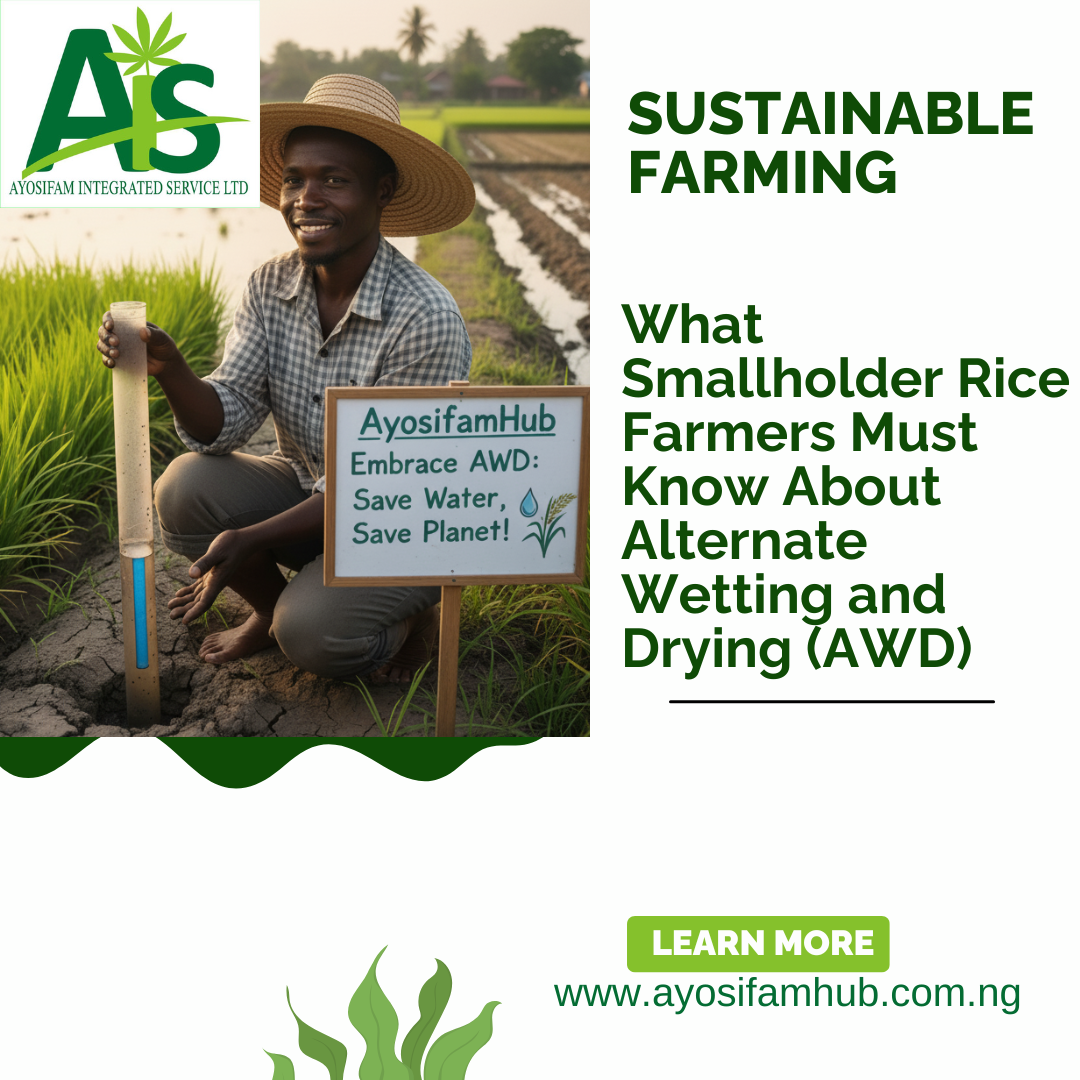Welcome to AyosifamHub! As your trusted source for practical and actionable farming advice, we know that your rice paddy is more than just a field—it’s your livelihood. For generations, keeping your rice plants continuously submerged has been the standard practice. However, this traditional method carries a heavy environmental cost, significantly contributing to global warming by releasing massive amounts of methane, a potent greenhouse gas.
Here at AyosifamHub, we are committed to empowering you with solutions that save you money and protect the planet. It’s time to embrace a crucial innovation: Alternate Wetting and Drying (AWD).
💧 What Exactly is Alternate Wetting and Drying (AWD)?
AWD is a smart water management technique that breaks the cycle of continuous flooding. It allows the soil in your rice field to dry out temporarily before being re-flooded. This controlled process is scientifically proven to reduce emissions without compromising your harvest.
How it Works: The AyosifamHub Farmer’s Guide
-
Initial Flooding: Just after transplanting the seedlings, keep the field flooded as you normally would for good establishment (about 1–3 weeks).
-
The Drying Period: This is the game-changing step. You must install a simple Field Water Tube (a perforated plastic pipe, about 40 cm long, partially buried in the soil) in your paddy.
-
Once the water level drops to 15 cm below the soil surface (as measured inside the tube), the drying period is complete.
-
-
Re-flooding: When the water reaches the low point, you re-flood the field to a depth of about 5 cm.
-
Repeat: Continue this wetting and drying cycle throughout the growing season.
-
Crucial Tip from AyosifamHub: You must keep the field continuously flooded from the flowering stage (panicle initiation) until the grain is fully developed. This prevents water stress during the most yield-sensitive phase.
-
🌱 Why AyosifamHub Recommends AWD: The Triple Win
By adopting AWD, you secure benefits for your wallet, your plants, and the world. This is the definition of sustainable farming that we champion at AyosifamHub:
- Financial Savings (Your Wallet):
-
AWD saves 15% to 30% of irrigation water, drastically cutting down on the fuel or electricity costs associated with pumping water.
-
-
Environmental Impact (The Planet):
-
Allowing the soil to dry lets oxygen enter, which suppresses the microbes that create harmful methane gas. You directly help fight climate change.
-
-
Crop Health (Your Yield):
-
Managed correctly with the Field Water Tube, AWD does not harm your harvest. In fact, it promotes deeper and stronger root systems, which can help plants access nutrients and withstand mild stress better, often leading to consistent or even higher yields.
-
💡 AWD Success Checklist from AyosifamHub
Action |
Why it Matters |
| Install the Field Water Tube |
This is your essential management tool. Guessing the water level is risky; the tube ensures precision, preventing drought stress. |
| Manage Weeds Early |
Drier periods can encourage weed growth. Start with effective control measures before the AWD cycle begins. |
| Flood During Flowering |
This is a non-negotiable rule. Protecting the plant during its reproductive stage guarantees maximum grain filling. |




